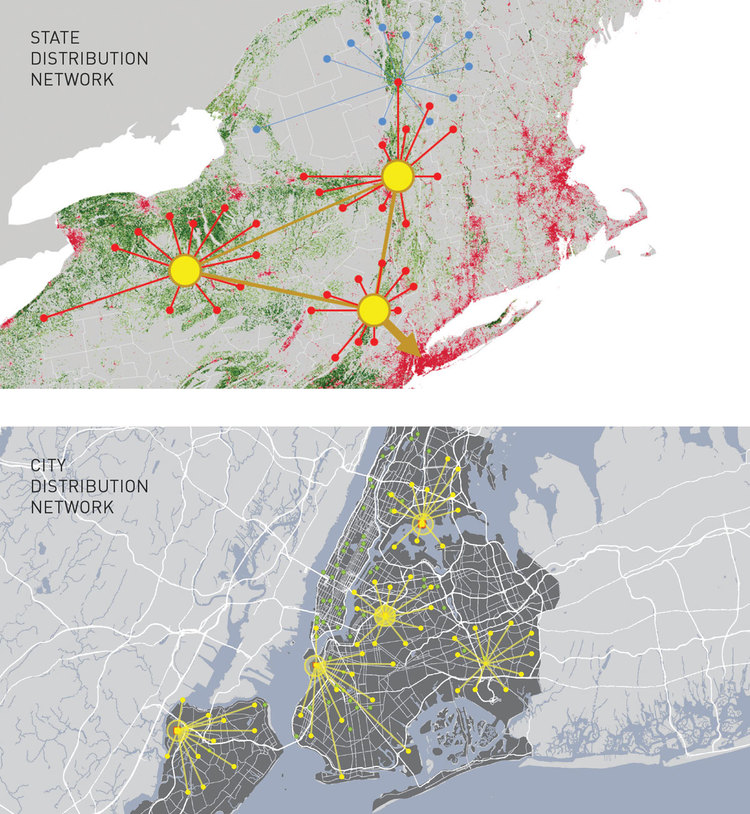
In the same way that New York City dedicates itself to building its water and waste infrastructure, we must recognize the importance of food to our health, security, and economy.
I propose the creation of the New York City Department of Food to oversee food security, improve public health, grow the regional food economy, and put New York on the path toward a more sustainable future. There is a significant market for locally supplied food in New York City. And, while there are ample farms and capacity for significant growth, upstate farming communities lack the processing and distribution infrastructure to effectively “ramp up” the supply into New York City.
Currently, about 14% of the city’s food is sourced locally. New York City can create a graduating locally sourced food contract through major city institutions such as public prisons, schools and hospitals. This would enable farmers to “plan” for growth based upon a recognized demand and increase investor willingness to construct the necessary infrastructure to support that growth.
Another challenge is efficient distribution. The State of New York should work to support the development of privately-operated collection, processing and distribution centers located proximate to concentrations of farms and ranches. A similar distribution network should be replicated within New York City, with a contracted operator providing storage, resorting, packaging and local distribution to end users through a fleet of energy-efficient vehicles organized to optimize final delivery. Through distribution infrastructure and an organized marketing effort to connect farmers with consumers, NYC can link the city marketplace with upstate food producers who do not yet have the business infrastructure to connect effectively with urban consumers.
This system of creating a market, building the necessary infrastructure, and connecting farmers with consumers will restore a sustainable farming economy in New York State with New York City benefitting from a lowered carbon footprint, reduction of truck traffic on City streets, greater access to local food, and a healthier diet.
Images: Thomas Jost, in partnership with the Urban Design Lab, Earth Institute of Columbia University.